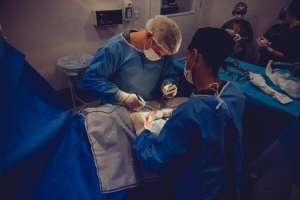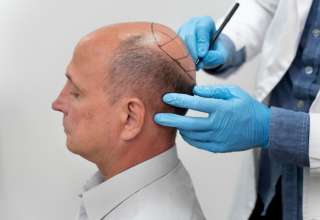Before commencing the surgery, your doctor and surgeon will evaluate you for a fitness test. The surgery shall only begin after you pass this fitness test since anesthesia and the inevitable blood loss during surgery can cause complications. Here is how you can naturally prepare your body for surgery:
Drink More Fluids and Take Iron Supplements
Gradually increase your fluid intake if you do not have any significant issue of fluid overloads such as kidney failure, edema, pulmonary effusion, or any other abnormal fluid displacement or decreased urine output problems. The human body contains 5 Liters of blood and filters and excretes around 2 liters or less urine. Thus, adequate fluid replacement is crucial to maintain an average balance. To prevent hemodilution, make sure you have normal hemoglobin and folic acid levels. Hemoglobin restoration takes around 120 days; thus, your doctor will suggest a blood transfusion if you have significantly low levels.
Control Anxiety and Make a Well-Informed Decision
Research has shown that patients who are anxious before surgery tend to bleed more during the procedure. It is probably attributed to the increased heart rate despite general anesthesia, which can only be administered to a specific limit. Excessive bleeding is one of the primary and common complications that surgeons try to avoid during surgery. Thus, in addition to checking the hemoglobin and clotting factor levels, your anxiety levels are also evaluated. Although, a few doctors overlook this parameter since no generalized scale or manual has been designed to measure anxiety clinically.
Some anxiety prevention measures include knowing the risks and outcome of the surgery, the cure rates, and the chances of failure. Make an informed decision by sitting with a health professional and outlining the post-op precautions, healing, and lifestyle changes. Talking to support groups experiencing similar diseases and having gone through similar procedures can significantly alleviate anxiety. Having a loving and compassionate family member also helps who employs distraction methods, breathwork, and a positive environment whenever the patient’s anxiety kicks in. Finally, a psychiatric evaluation and the administration of anxiolytics are the last resort for severe cases.
Cessation of Smoking, Alcohol, and Any Recreational Drugs
Stimulants, hallucinatory drugs, depressants, sedative drugs, euphoriants, and analgesic drugs used for recreation should be staunchly avoided before surgery. If they are not completely cleared from your system, they can cause important and unpredictable consequences during surgery. This becomes especially important when the surgery requires general anesthesia. Taking drugs that alter your mental status or pain perception can cause over or under-dosing. Thus, causing morbid outcomes such as Brady or tachycardia, respiratory distress, muscle weakness, paralytic ileus, and electrolyte dysfunction. In some cases, it can also cause death due to unforeseen cardiac arrest. Thus, despite strict evaluation and drug tests before surgery, one must avoid taking any nervous system-altering drugs before surgery – especially since the fitness test has been approved.
Preoperative Exercise Training
One of the reasons why patients have a prolonged hospital stay is due to postoperative pulmonary complications (PPCs). Muscle weakness after anesthesia is expected since the diaphragm is the primary muscle for breathing, and it often takes a while to recover till the effect of anesthesia wears off. In this duration, infectious agents can settle within the lungs when the exploratory output is compromised and cause PPCs. Thus, preoperative exercise training becomes crucial for cardiac, lung, abdominal, and esophageal surgeries. Most exercises focus on increasing lung capacity to improve peak oxygen intake and maximal inspiratory pressure. Endurance training before surgery has proven to improve functionality and shorten hospital stays.
Avoid Fried and Processed Foods
A nutritionist is usually on the fitness panel to guide you about the type of diet you need before the surgery. You also get a briefing about keeping your stomach empty, usually before surgery. Parenteral nutrition is compulsory in elderly patients with poor health and functionality. But if you can eat on your own, it’s best to avoid eating fried and processed foods. They are pro-inflammatory and have low nutritional value. Opt for fresh fruits, vegetables, and a sufficient amount of protein and dairy. If you have enough time, then correct any metabolic disturbances.
In conclusion, the fitness evaluation certification from your doctor does check all aspects that might be potentially life-threatening. But to shorten your hospital stay and for speedy postoperative recovery, you must focus on the above-mentioned natural methods of preparing for surgery.
Read More: Ways that Corrective Surgery Improves Body and Facial Appearance











